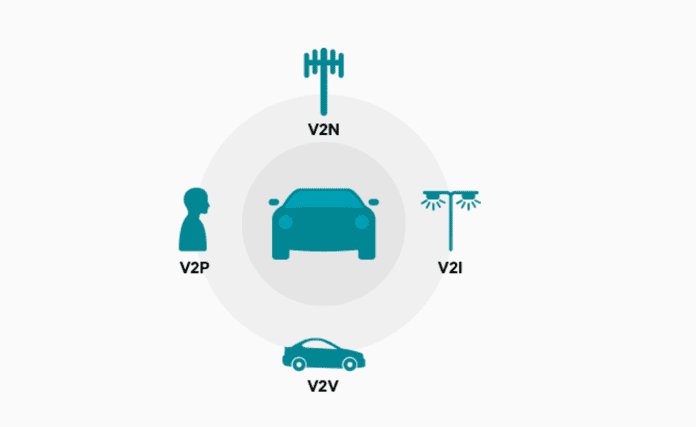China leading the way on deploying C-V2X
Cars that can talk to each other, smart infrastructure and even pedestrians, access cloud services for navigation and infotainment and tap cellular networks to stream data is the vision of cellar vehicle-to-everything or C-V2X. Qualcomm has been preaching the gospel of C-V2X for several years and, with significant momentum building in key global markets, sees 2019 as a breakout year.
Qualcomm President Cristiano Amon, in a recent tweet, referred to C-V2X as “the future of transportation” and key to “safer, more efficient autonomous transport.” Maged Zaki, director of technical marketing at Qualcomm, dug into the present and future of the connectivity scheme in a Nov. 1 blog post.
He said C-V2X is the “technology of choice” for vehicle connectivity in China and called out a benchmark set by the country’s National Development and Reform Commission of 90% coverage by 2020. Qualcomm is engaged with Genvict, Nebula Link, Neusoft and operator China Mobile, the biggest mobile operator in the world, on developing roadside equipment using Qulacomm’s 9150 chipset.
Earlier this year, Peugeot and Citroen demoed vehicles kitted out with that same chipset as part of a pilot funded by the country’s Ministry of Industry and Information Technology, Ministry of Public Safety and the Jiangsu Provincial Government.
“We’re developing many of the foundational technologies behind C-V2X and working closely with global automakers, Tier 1 suppliers, infrastructure providers, Intelligent Transportation Systems (ITS) software developers, connected vehicle solution providers, road operators, mobile network operators, and governments to help transform the transportation industry,” Zaki wrote.
One of these partnerships is with Quectel, which toady announced a new C-V2X module that also uses Qualcomm’s 9150. “Automated driving has unique requirements for V2X connectivity, such as lower latency, higher reliability and wider
bandwidth, all of which could be addressed by C-V2X technology,” according to Patrick Qian, CEO of Quectel.
“The momentum behind C-V2X continues to build,” Zaki wrote, “and C-V2X is ready for deployment in vehicles as early as next year.”

